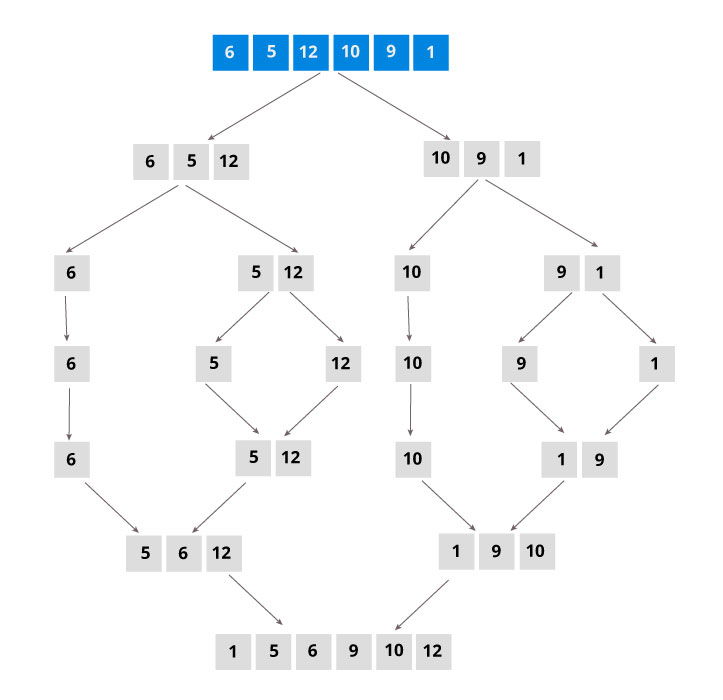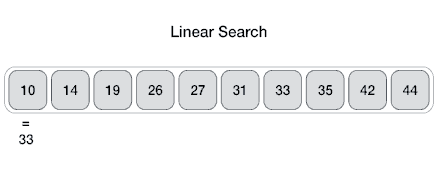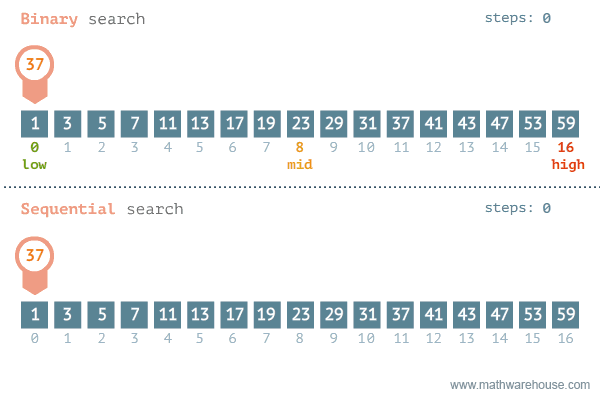Sorting and Searching Algorithms
Telerik Academy Alpha
DSA
Table of contents
What is a sorting algorithm?
What is a sorting algorithm?
- Sorting algorithm
- An algorithm that puts elements of a list in a certain order
- More formally:
- The output is in some order
- The output is a permutation of the input
- Efficient sorting is important for
- Producing human-readable output
- Optimizing the use of other algorithms
- Sorting presents many important techniques
Sorting algorithms animation

Classification
-
Sorting algorithms are often classified by
-
Computational complexity
-
worst, average and best behavior
-
-
Memory usage
-
Recursive or non-recursive
-
Stability
-
Whether or not they are a comparison sort
-
General method
-
insertion, exchange (bubble sort and quicksort), selection (heapsort), merging, serial or parallel…
-
-
Stability
-
Stable sorting algorithms
-
Maintain the relative order of records with equal values
-
-
If two items compare as equal, then their relative order will be preserved
-
When sorting only part of the data is examined when determining the sort order
-
Sorting algorithms
- Very simple and very inefficient algorithm
- Best, worst and average case: \( n^2 \)
- Memory: 1 (constant, only for the min element)
- Stable: No
- Method: Selection
procedure selectionSort( A : list of sortable items )
n = length(A)
for i = 0 to n-1 inclusive do
min = i;
for j = i+1 to n inclusive do
if A[j] < A[min]
min = j
end if
end for
if min != j
swap(A[j], A[min])
end if
end for
end procedure- Pseudocode
- Repeatedly stepping through the list
- Comparing each pair of adjacent items
- Swap them if they are in the wrong order
- Best case: \( n \),
- Worst and average case: \( n^2 \)
- Memory: 1
- Stable: Yes
- Method: Exchanging
procedure bubbleSort( A : list of sortable items )
n = length(A)
repeat
swapped = false
for i = 1 to n-1 inclusive do
/* if this pair is out of order */
if A[i-1] > A[i] then
/* swap them and remember something changed */
swap( A[i-1], A[i] )
swapped = true
end if
end for
until not swapped
end procedure- Pseudocode
- Builds the final sorted array one item at a time
- Best case: n
- Worst and average case: \( n^2 \)
- Memory: 1
- Stable: Yes
- Method: Insertion
procedure insertionSort( A : list of sortable items )
i = 1
while i < length(A)
j = i
while j > 0 and A[j-1] > A[j]
swap A[j] and A[j-1]
j = j - 1
end while
i = i + 1
end while
end procedure- Pseudocode
- First divides a large list into two smaller sub-lists then recursively sort the sub-lists
- Best and average case: \( n*log(n) \)
- Worst: \( n^2 \)
- Memory: \( log(n) \) stack space
- Stable: Depends
- Method: Partitioning
algorithm quicksort(A, lo, hi) is
if lo < hi then
p = partition(A, lo, hi)
quicksort(A, lo, p)
quicksort(A, p + 1, hi)- Pseudocode
algorithm partition(A, lo, hi) is
pivot = A[lo]
i = lo - 1
j = hi + 1
loop forever
do
i = i + 1
while A[i] < pivot
do
j = j - 1
while A[j] > pivot
if i >= j then
return j
swap A[i] with A[j]- Conceptually, a merge sort works as follows
- Divide the unsorted list into n sublists, each containing 1 element (list of 1 element is sorted)
- Repeatedly merge sublists to produce new sublists until there is only 1 sublist remaining
- Best, average and worst case: \( n*log(n) \)
- Memory: Depends; worst case is \( n \)
- Stable: Yes;
- Method: Merging
- Highly parallelizable (up to \( O(log(n) \))
- using the Three Hungarian's Algorithm


merge(A, lo, mid, hi)
{
/* Merge A[lo..mid] with A[mid+1..hi] */
i = lo
j = mid+1
for (int k = lo; k <= hi; k++)
/* Copy a[lo..hi] to aux[lo..hi] */
Aux[k] = A[k];
for (int k = lo; k <= hi; k++)
/* Merge back to a[lo..hi] */
if (i > mid) A[k] = Aux[j++];
else if (j > hi ) A[k] = Aux[i++];
else if (less(Aux[j], Aux[i])) A[k] = Aux[j++];
else A[k] = Aux[i++];
}- Pseudocode
sort(A, lo, hi)
{
/* Sort a[lo..hi] */
if (hi <= lo) return;
int mid = lo + (hi - lo)/2;
/* Sort left half */
sort(a, lo, mid);
/* Sort right half */
sort(a, mid+1, hi);
/* Merge results */
merge(a, lo, mid, hi);
}- Pseudocode
Comparison of Sorting Algorithms
- There are hundreds of sorting algorithms
- Some of them are:
| Name | Best | Avg | Worst | Memory | Stable |
|---|---|---|---|---|---|
| Bubble | n | n^2 | n^2 | 1 | Yes |
| Insertion | n | n^2 | n^2 | 1 | Yes |
| Quick | n*log(n) | n*log(n) | n^2 | log(n) | Depends |
| Merge | n*log(n) | n*log(n) | n*log(n) | n | Yes |
| Heap | n*log(n) | n*log(n) | n*log(n) | n | No |
| Bogo | n | n*n! | n*n! | 1 | No |
What is a searching algorithm?
What is a searching algorithm?
- An algorithm for finding an item with specified properties among a collection of items
- Different types of searching algorithms
- For virtual search spaces
- satisfy specific mathematical equations
- try to exploit partial knowledge about structure
- For sub-structures of a given structure
- graph, a string, a finite group
- Search for the max (min) of a function
- For virtual search spaces
Which algorithm
- What the most people (non-programmers) would think when they need to search a value in a collection
- Scan all the possibilities and if found return it
- A big problem with large collections
- The next exmple is simple enough
- But imagine thousands or millions of numbers

Searching Algorithms
- Method for finding a particular value in a list
- Checking every one of the elements
- One at a time in sequence
- Until the desired one is found
- Worst and average performance: \( O(n) \)
for each item in the list:
if that item has the desired value,
stop the search and return the location.
return nothing.- Finds the position of a specified value within an ordered data structure
- In each step, compare the input with the middle
- The algorithm repeats its action to the left or right sub-structure
- Average performance: \( O(log(n)) \)
- Example: Recursive binary search
Binary Search - recursive
binarySearch(A, key, lo, hi)
if (to < from)
// set is empty, so return value showing not found
return KEY_NOT_FOUND
// calculate midpoint to cut set in half
middle = midpoint(from, to)
if (A[middle] > key)
// key is in lower subset
return binarySearch(A, key, from, middle - 1)
else if (A[middle] < key)
// key is in upper subset
return binarySearch(A, key, middle + 1, to)
else
// key has been found
return middle- Pseudocode
Binary Search - linear
binarySearch(A, int key)
while (from <= to)
//calculate the midpoint for roughly equal partition x/
middle = midpoint(from, to)
// determine which subarray to search
if (A[middle] < key)
// change from index to search upper subarray
from = middle + 1
else if (A[middle] > key)
// change to index to search lower subarray
to = middle - 1
else
// key found at index middle
return middle
return KEY_NOT_FOUND- Pseudocode
Linear vs Binary search
